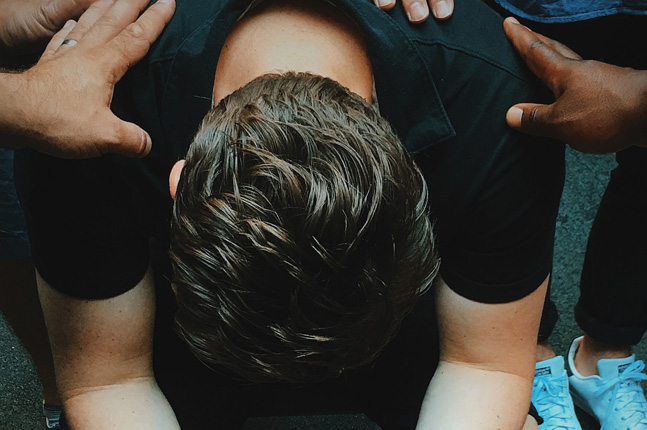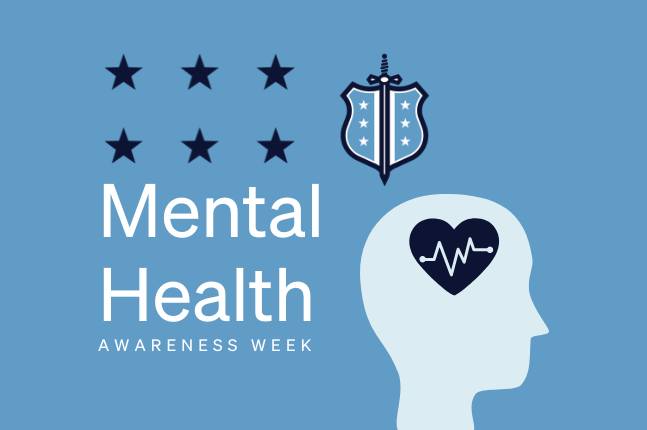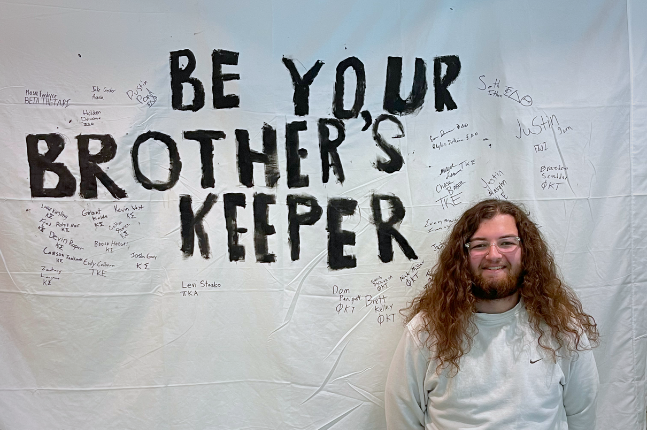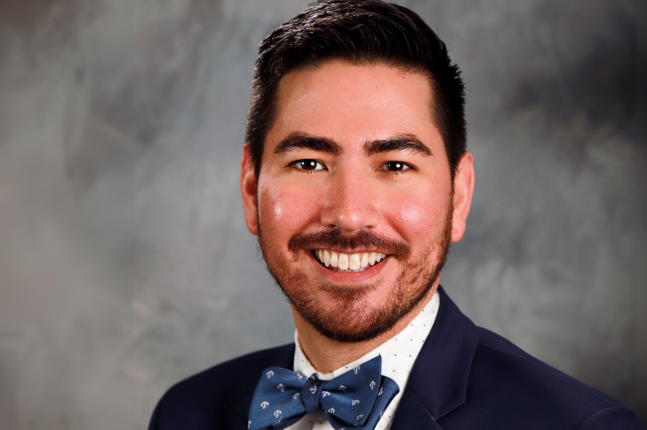By Austin A. Deray, Diversity and Inclusion Commissioner
While I have volunteered with Phi Delta Theta since 2014, I have been a higher ed professional since 2011. The hardest part about working in this space is losing a student, which is compounded when a student’s self-harm leads to death. In my Phi Delt volunteer experience, I first encountered death by suicide in 2018.
I will never forget when I received the call that one of my mentees had died by suicide. It was a moment of profound sadness, loss, and confusion. It’s a moment I hope you never experience.
That is why I, and others within our Fraternity, have made it a priority to continue working towards a year where no more brothers have death by suicide. This goal will only be accomplished if we have tough conversations about mental health and harm awareness within the Fraternity.
Doris Rottenburg-Sommer reminds us that “when a tragedy is not spoken of openly, there can be no true sympathy, sharing, or healing.”
Her words really hit home for me.
Too often, we shy away from talking about self-harm and death by suicide because of “feelings of self-denigration and self-recrimination” for those we have lost.
I know I did when we lost Alec.
It’s been five years now, and we’ve had over twenty-five deaths by suicide, an average of six deaths by suicide a year within the Phi Delt community.
I think the best way we can help is to talk about suicide prevention and consider potential warning signs.
I want to clarify that I am not a mental health professional. I have looked into the subject to improve my work as a higher ed professional, fraternity/sorority volunteer, and adviser.
The American Foundation for Suicide Provention is a great resource. It reminds us that suicide is complex and there is no single reason for its occurrence. However, it often occurs when the intersection of mental health challenges (anxiety and depression), environmental stressors (daily life), and a lynchpin moment (a poor test score or experiencing rejection) meet.
As brothers, there are warning signs we can be on the look, which might help prevent a death by suicide. Recognizing these warning signs requires that we pay attention to the following:
- Our brother’s well-being, mentally and physically.
- Our brother’s environment, which includes:
- Interpersonal stressors such as harassment, bullying, or relationship issues.
- Situational stressors such as a change in employment or an event at school induce stress.
- Their trauma history (e.g., childhood trauma/abuse or past experiences of self-harm.)
You might also consider the following questions:
- Is your brother discussing moments of their own hopelessness, rejection, self-harm, or stagnation?
- Are they describing something troublesome or mentioning experiencing unbearable pain?
- Are they turning to aggressive substance abuse or anger?
- Have they self-isolated, withdrawn from activities, or experienced insomnia?
- Is their mood one of agitation, anxiety, depression, irritability, and/or shame?
If you notice any of these warning signs or the answer to any of these questions is yes, check in with your brother to see if they want or need help. Refer them to the proper support channels like a counseling and psychological services office. You might also have a help and safety check performed or offer to seek help with them. I know presidents, chaplains, and other members who have walked with their brothers to the university counseling center or the center for student support. You can do this too.
If you need help accessing resources, start here. The Fraternity has compiled a list of student support centers on all of our campuses.
Regardless of whether you are an active member or an alumni adviser, we all want the same thing–the health and safety of all our members.
My sister, while completing her master’s in social work from NYU’s Silver School of Social Work, shared that one of the problems is the stigmatization of beginning the conversation about suicidal ideation. She says, “If we are too afraid to talk about it, we won’t be able to have a plan of action, a safety plan.”
Having these tough conversations makes it less likely that someone dies by suicide, as these conversations show support for compassion and destigmatize men’s mental health and the shame and fear around speaking about self-harm. The normalization of mental health conversations will allow us to help others and ourselves; through that effort, more of our brothers will be able to find a pathway forward.
Together, we can be our brother’s keeper. Together, we can prevent suicide.
If you are in a crisis and need immediate support, please call or text 988 or TALK to 741741.





